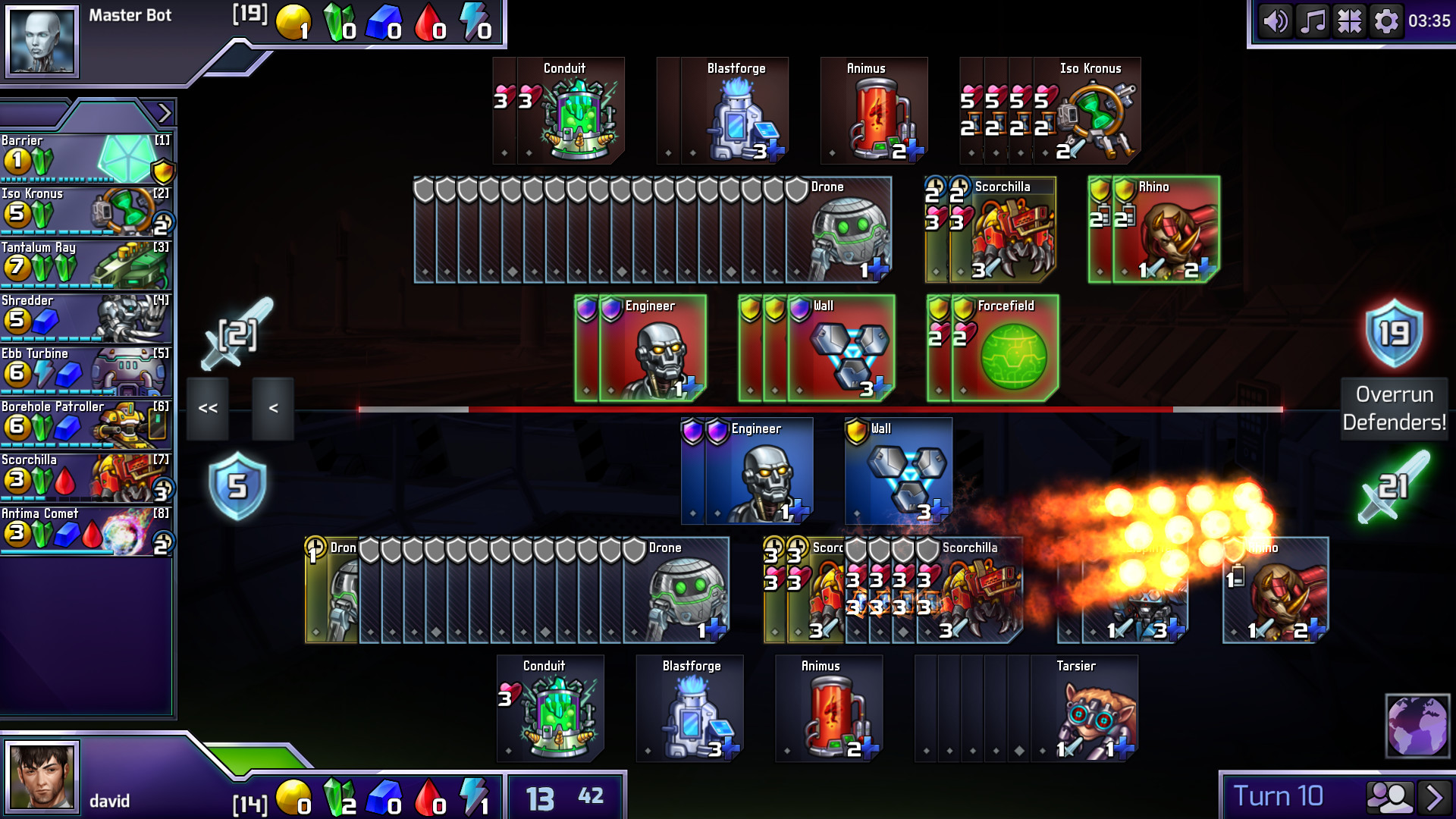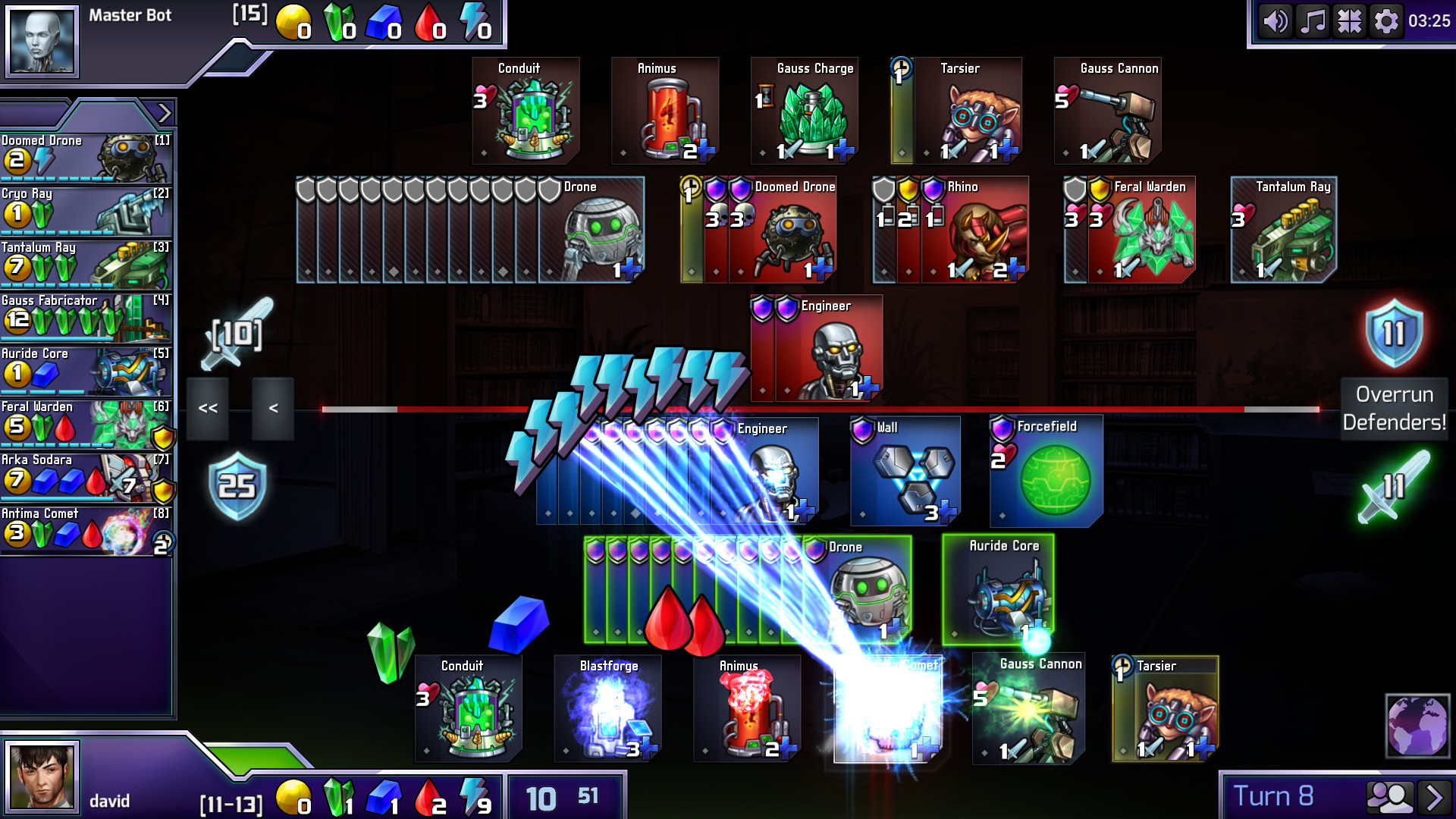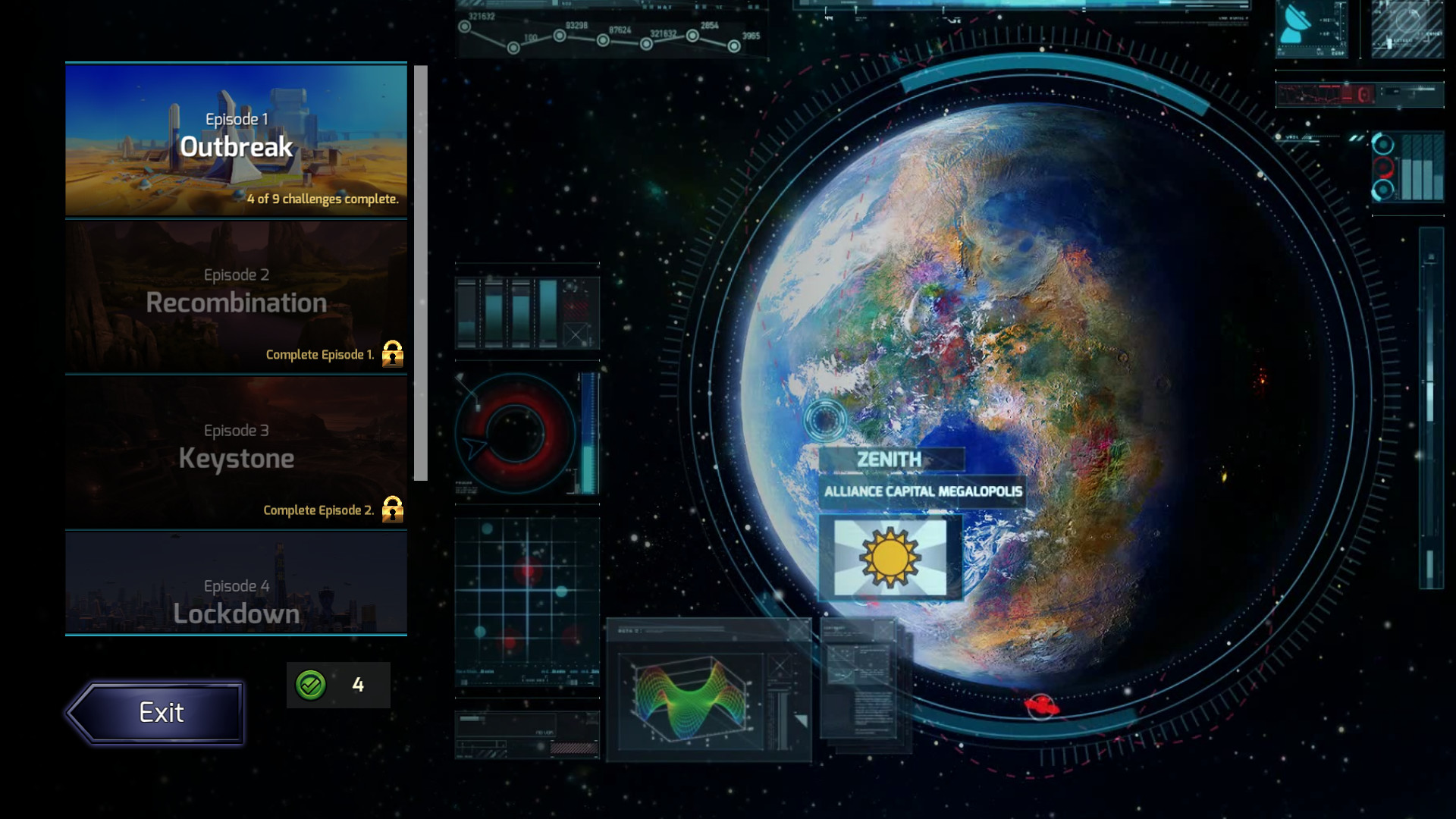Prismata is a mutant hybrid of RTS and board game, and it works
It’s like Starcraft without map control, or maybe Hearthstone without cards?

I’m not sure at what point I stopped being confused by and started enjoying Prismata. It might have been after I grasped that some of my key production robots were also one of my lines of defense. It might have been hours later when I realized that Prismata is a symmetrical fight driven by asymmetrical strategies, like a good Terran vs Terran Starcraft 2 match.
In a round of Prismata players compete in turn-based duels familiar to players of most any competitive card game. Taking turns, they attempt to wipe out the enemy's units like an RTS—there’s no player health like in Magic or Hearthstone. If you control nothing, you lose. Each turn, certain of your units produce resources, some of which are conserved and stockpiled for future rounds like RTS resources, while others must be spent on new units or unit abilities or be lost, like card game resources.
These units are produced from a pool of cards, different each game, and each card is always available to both players. Units are then set to attack enemy defenders. If they achieve a breakthrough by destroying them all, they can then attack any enemy unit on the field. You make a lot of strategic choices in that simple framework because in any given match you and the opponent are working from the same pool of available unit cards: Anything you can do, your opponent can do, and victory goes to whoever builds the best strategy from the same set of components.
Though made of familiar parts, it's a game setup I've never precisely seen before. Prismata has clearly spent a long time in development to become what it is—I can even see major differences from our 2014 preview.

Prismata reminds me of Ascension or Star Realms, deckbuilding games that force adaptive strategies from a limited pool of cards while emphasizing building an overall strategy. In many ways it’s like archetypal deckbuilder Dominion: Everyone has access to the same pool of cards, but might choose to use them to different ends. But it's not precisely a deckbuilder.
At the same time it has the push and pull of an RTS, especially an older school RTS like Command & Conquer or Starcraft, encouraging you to build counters to your opponent and attack their economy to gain control of the match’s momentum. Your struggle against an opponent is often evenly matched until a collapse causes a huge swing in one direction or another—but that doesn’t mean there’s no hope of recovery, only that you need to take a new tack.
But these are pale comparisons. In play it’s not truly like either of those genres. A match is a tense game of tug of war because of how much information is completely open. Like many strategy board games, you can see an opponent’s entire board state at any time. You know their capabilities. They know yours. When you lose, you can often figure out where you went wrong and improve for the next match.
Keep up to date with the most important stories and the best deals, as picked by the PC Gamer team.

Prismata also has an episodic singleplayer campaign about the people who build and control these armies of cyborg robots battling with each other and with rogue artificial intelligence, or some such thing like that. It’s not done yet, but it was a fun way to learn the rules and throws some good, sometimes incredibly tough, board state puzzles for you to wiggle your way out of. It even has nice illustrations and distinctive characters, though the writing and plot are at times stilted.
Funded in a Kickstarter campaign in 2014, Prismata came to Steam Early Access this year with a Founder’s Edition while developers Lunarch Studios iron out the last few kinks. It’ll have a free to play Lite Edition later this year before its release in autumn.
Jon Bolding is a games writer and critic with an extensive background in strategy games. When he's not on his PC, he can be found playing every tabletop game under the sun.

